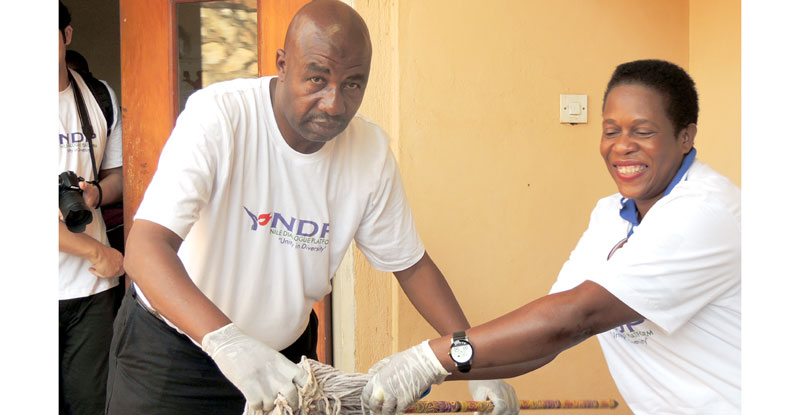Thousands of Ugandans die every year from preventable conditions because of the unwillingness by majority of the population to donate blood, The Sunrise has learnt.
The Director of Uganda Blood Transfusion Services, Dorothy Kyeyune revealed that the country faces a shortage of 140,000 units of blood (41%) of the required amount of blood every year.
The revelation was made during a blood donation exercise that was organised by the Nile Dialogue Platform. The blood donation exercise was part of a wider social responsibility campaign dubbed Harmony Walk that involved the cleaning of Kisugu KCCA health centre.
Kyeyune particularly decried the unwillingness by young people above 17 years to donate yet they are considered best suited for the civic cause. Findings show that although people as old as 66 can donate blood, younger people are not willing to do so.
As Kyeyune points out, its just 170,000 Ugandans who voluntarily, donate blood while 30,000 units are obtained through corporate organized-events.
The problem is made precarious in rural areas where peasants are not willing to donate blood, and besides the poor state of infrastructure such as electricity blackouts that renders blood to get spoiled. Lack of blood purification and transportation facilities in rural areas too have been cited as an obstacle.
Nile Dialogue’s spokesperson Isa Kilarira dismissed stereo types among many people which he blamed for the low levels of blood donation.
“Blood has neither religion nor tribe, we all need it and it’s our duty to dearly donate blood regularly so as to cope with blood demand,” Isa Kilarira
Kilarira noted that as Nile Platform seeks to promote peace through understanding and building good relations with others the gestures such as donating blood.








